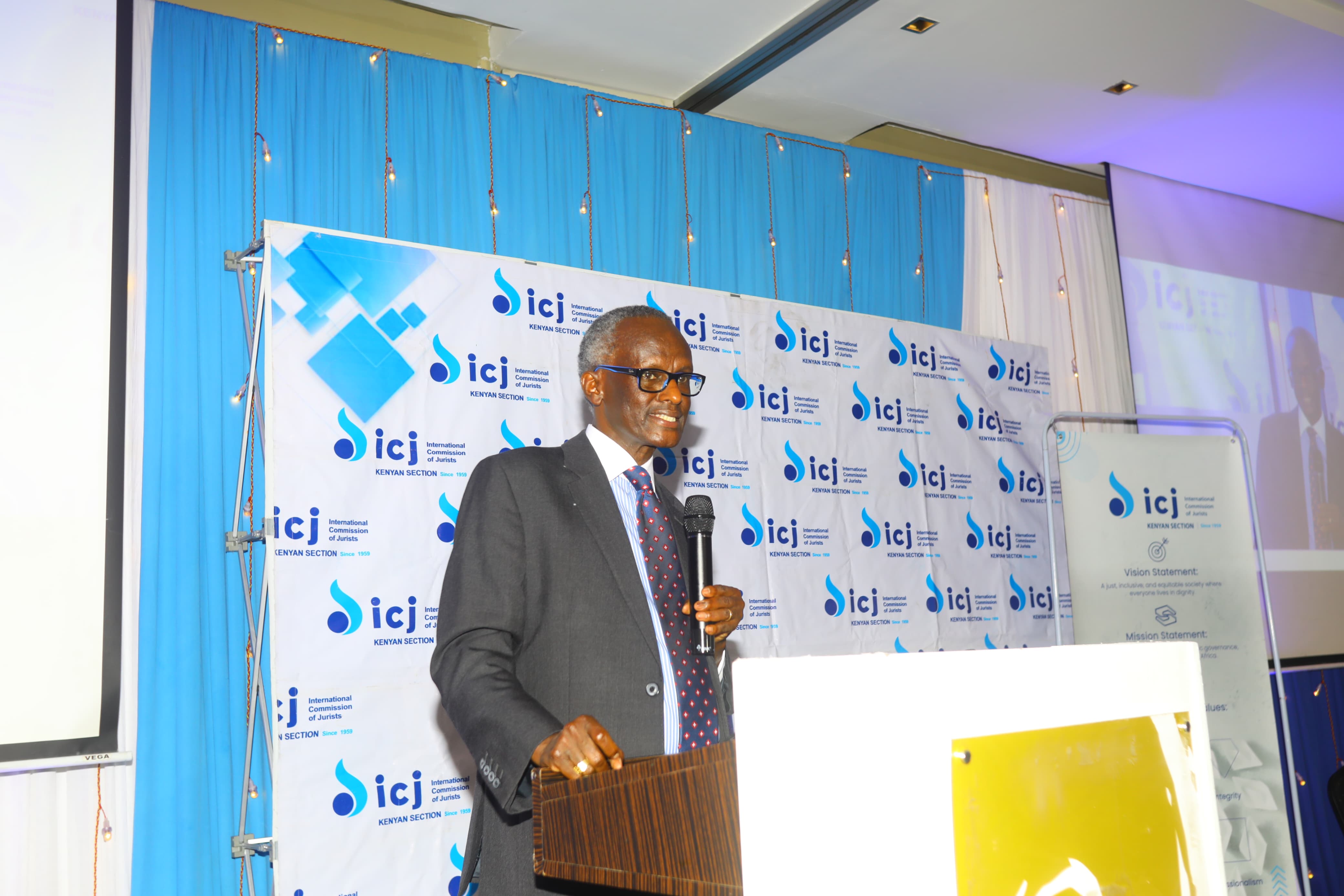

Supreme Court judge Isaac Lenaola has raised concerns over the growing marginalisation of boys, saying they are increasingly being neglected and left behind in key areas of development and opportunity.
Speaking on Friday during the launch of the strategic plan of the Kenyan Section of the International Commission of Jurists (ICJ), he cited a recent hiring process within the Judiciary as a stark example of the disparity.
Of the 32 applicants to a position he did not disclose, only four were men—and only one man was selected.
“It may be because for many years, we have done a great work in focusing on the plight of women and girls, boys have not received enough support and attention. This needs to change,” he said.
Justice Lenaola said while the historic and ongoing focus on women and girls has been essential, especially in addressing systemic injustices in a patriarchal society, it is now equally important to shift some attention to the welfare of boys, who are showing signs of social and academic decline.
“The decades-long focus on the girl child cannot be faulted,” he said.
“For a long time, women have not been well treated in the patriarchal Kenyan society, but the success of that campaign should not result in regression on the situation of boys.”
His concern is echoed in findings from a 2017 report by the National Gender and Equality Commission, which assessed perceptions about the exclusion of boys in the gender equality agenda, and found the concerns merited.
The report, based on an assessment in Kiambu, Kakamega, Kisumu, Embu, Garissa, Kericho, Mombasa and Kilifi, confirmed boys are lagging behind.
“Majority of the respondents expressed fear that if there are no interventions, the boy child will be left behind, especially in education, since there has been over-emphasis on the education of the girl child,” the report said.
“The assessment identified the key drivers of exclusion of the boy child to include those related to homes and families, the socialisation process, cultural and traditional factors, and peer pressure.”
Lenaola's comments came at a time when Kenya's gender equality discourse is evolving, with increasing calls for more inclusive approaches that consider the vulnerabilities of all genders.
While gains made in uplifting the girls are widely acknowledged and celebrated, experts warn that boys must not become collateral damage in the fight for gender parity.
On the ICJ’s six-year strategic plan, Justice Lenaola praised the organisation as a “steadfast beacon of democracy,” calling the blueprint a “significant milestone in the pursuit of human rights, justice, and the rule of law”.
“You have been instrumental in holding power to account in more ways than one,” he said.
“Through your advocacy, public statements and engagement with key institutions, you have consistently demanded accountability from the Executive, Parliament, and even the Judiciary.”
The new strategic plan aims to enhance judicial independence, build capacity among legal professionals, and expand grassroots access to justice.
So far, the ICJ has trained 180 paralegals and 100 community justice actors as part of its commitment to strengthening community-level legal awareness and public trust in the justice system.
The organisation has also made notable progress in promoting media freedom, pushing for the decriminalisation of petty offences, advancing electoral justice and championing police reforms.
ICJ chairman Protas Saende acknowledged the essential role played by development partners, legal networks, and civil society allies in sustaining these efforts.
ICJ executive director Erick Mukoya said the new strategy will also focus on fortifying the organisation.
“We want to strengthen the lobby as an institution to withstand shocks that emerge from time to time in the country and that mostly undermine the capacity of civil society groups to continue their work,” he said, citing the Covid-19 pandemic as a recent example that crippled many under-resourced civil society organisations.











